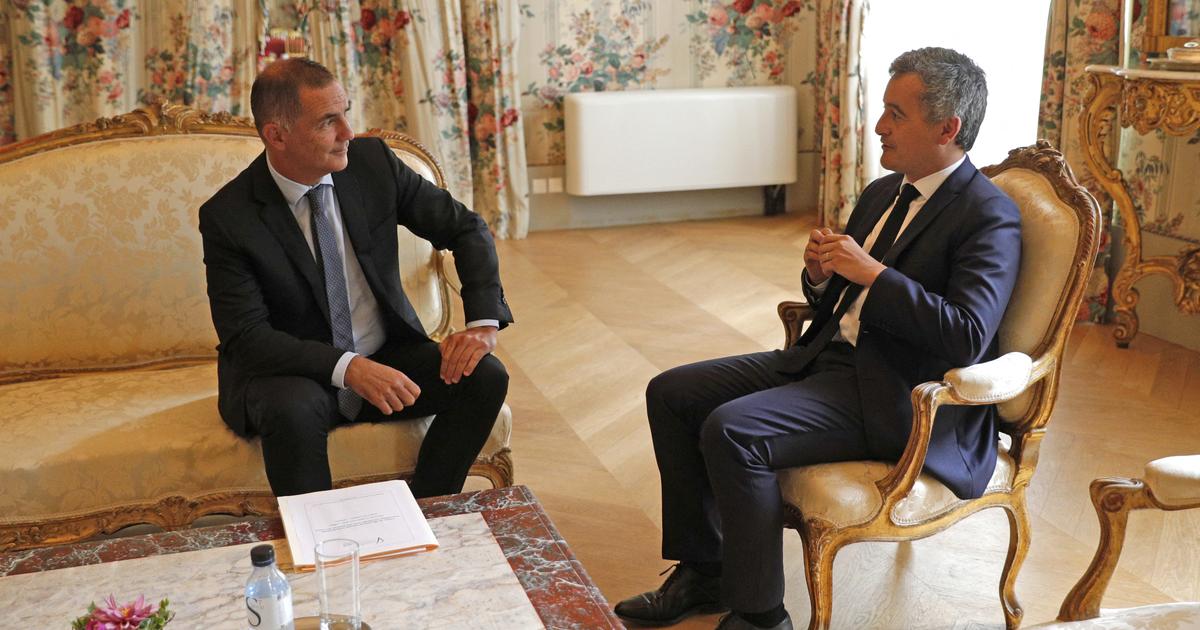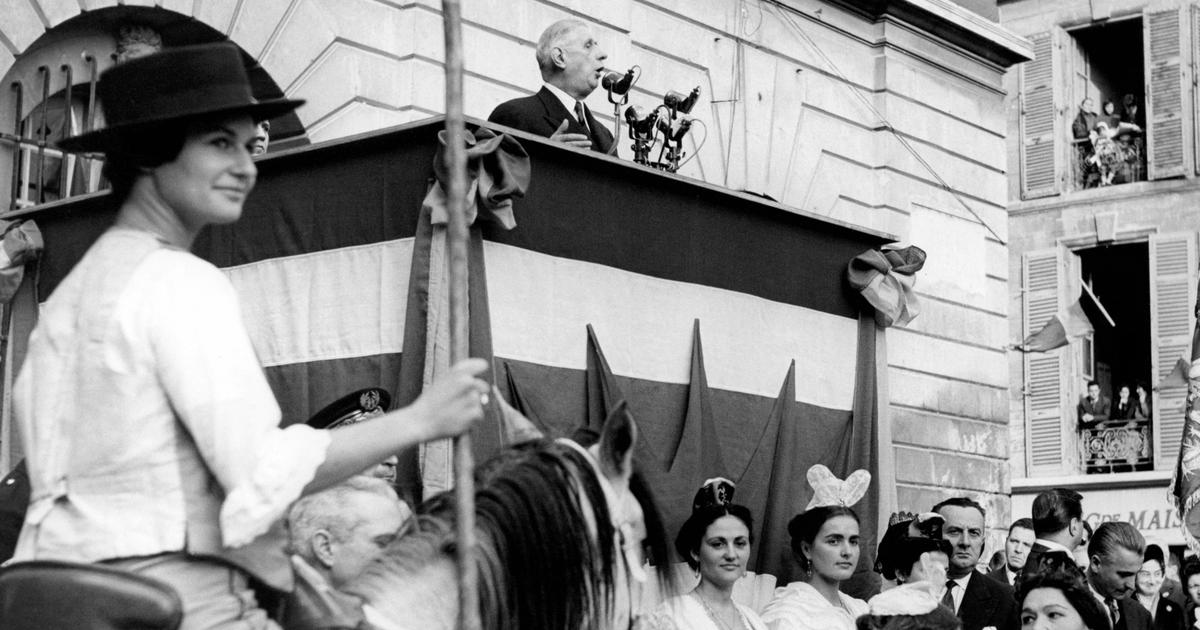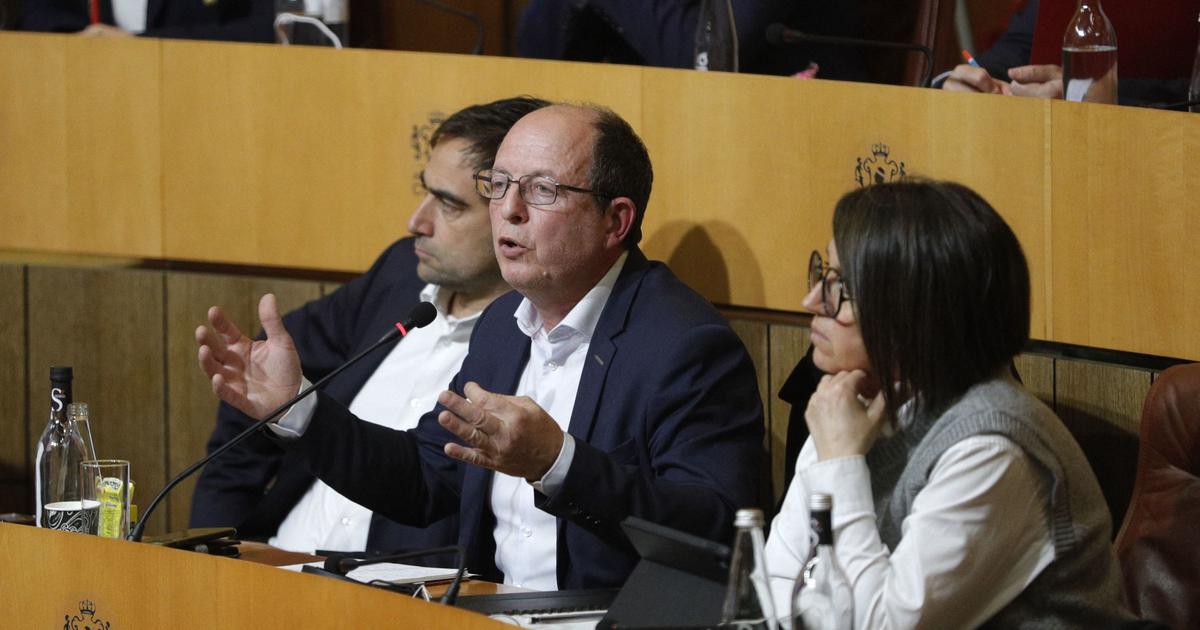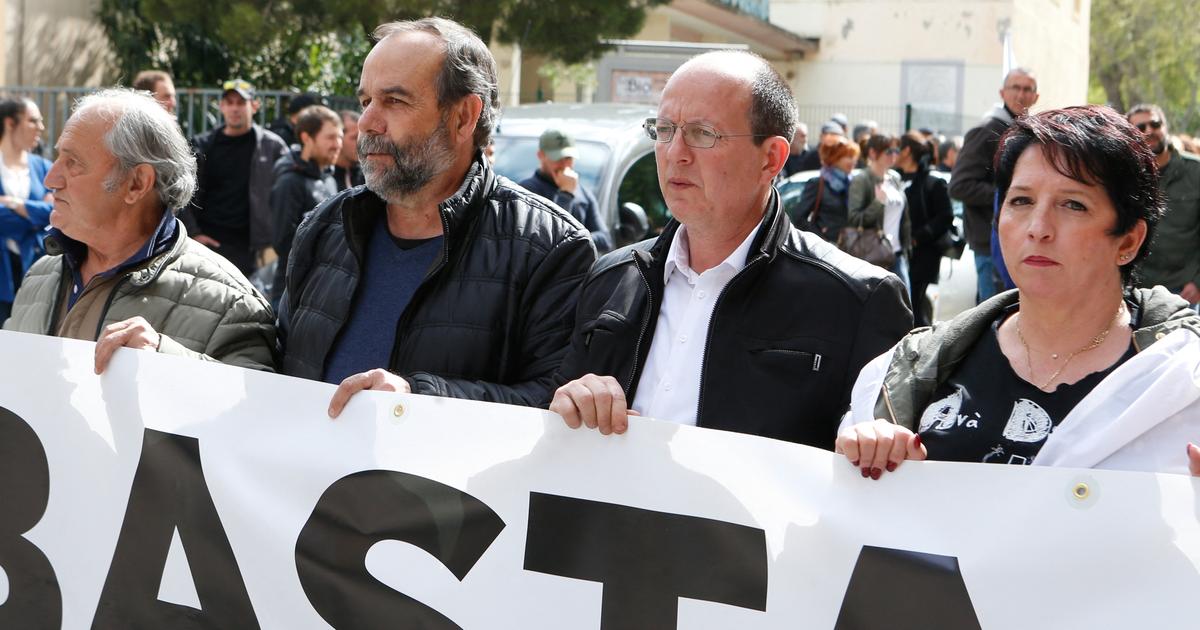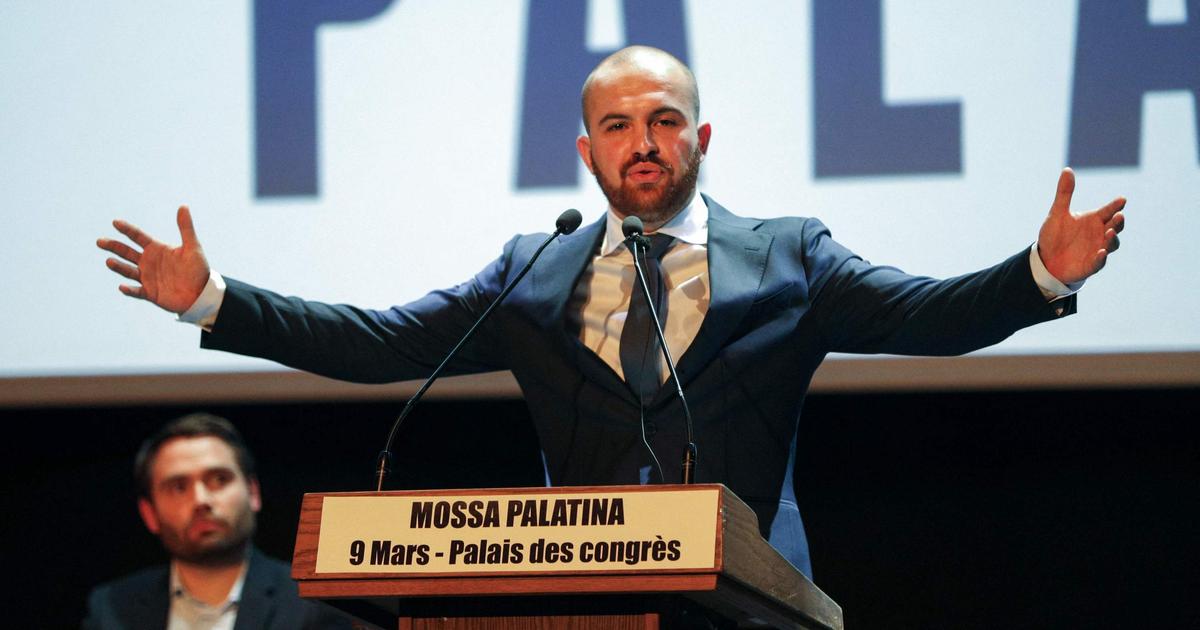Corsica wants independence: "The state has no choice"
Created: 2022-06-07 08:47
By: Tobias Utz
France is about to hold parliamentary elections.
But old conflicts are boiling up in Corsica: an interview with extremism researcher Thierry Dominici.
Paris/Ajaccio – The situation in Corsica escalated in March.
Large numbers of people demonstrated for the island's independence following a deadly attack on the heroic separatist Yvan Colonna in Arles prison.
French Interior Minister Gérald Darmanin promised to talk about autonomy to calm the protests.
Since then, calm has returned – and France has re-elected Emmanuel Macron as President.
But a majority of both Corsican departments voted for the right-wing extremist Marine Le Pen: In an interview with our editors, political scientist Thierry Dominici explains what is behind it and what that means for the upcoming parliamentary elections in France.
Mr Dominici, Marine Le Pen's far-right party has won almost 60 percent of the votes in each of the Corsican departments. What do you think are the reasons for this result?
First of all, with regard to the increase in votes for the extreme right, it must be remembered that since the financial crisis of 2008, almost all democratic systems have been faced with a crisis of partisan political representation in general, and thus with a development of political life in particular.
Today, this crisis of representation in democratic systems has a strange tendency to crystallize in past-oriented or backward-looking thoughts, a kind of retrotopia in the sense of Zuygmunt Bauman, who enacts the idea of a miracle man and the idea of participatory democracy and thus of coexistence.
In other words, even if today's populism, like the populisms of the past, occurs in a context in which the people are searching for the sources of the malfunctions of power,
Scenes from Ajaccio: The riots were triggered by an attack by a fellow inmate on the well-known Corsican separatist Yvan Colonna in Arles prison in early March.
Colonna was serving a life sentence there for the 1998 murder of Prefect Claude Erignac.
Yvan Colonna eventually died in hospital.
© Pascal Pochard-Casabianca / AFP
With the election of Marine Le Pen, I find that the populist-leaning “RN” (Rassemblement National; editor's note) is at the center of palpable and troubling geopolitics, some of which are at the power centers of so-called illiberal democracies.
In fact, to date there are around thirty parties in eighteen European countries that want to practice a right-wing populism almost identical to that proposed by Marine Le Pen.
More specifically, I note that in the last European elections in 2019, several of these groups passed the 10 percent mark in eight EU Member States.
In addition, the results of the last parliamentary elections in some EU member states such as Poland (37.6 percent), Austria (26 percent) or Denmark (21 percent) clearly show
Yellow vest crisis, corona pandemic, controversial health policy: Macron's foundation is shaking
This conceptualization makes it possible to explain why, during President Macron’s five-year tenure, each time the foundations of the reference points and universals of representative democracy faltered – the yellow vest crisis, the corona pandemic, social conflicts related to public health policies – the Populism of the "RN" in the mass media and social networks more and more "flickered".
The “RN” has exploited this crisis of representation and, for the past five years, presented itself as the magic solution to the demand for more popular initiative legislation (RIC, imperative mandates of elected officials, etc.) and less technocracy.
Given these arguments, the Corsican results are not paradoxical but reflect a national demand.
In other words:
One cannot compare the results of the Corsican nationalists in the regional elections with the results of the RN in Corsica.
We are not on the same scale of meaning.
What role do separatist plans play for Le Pen's supporters?
Technically none.
The two nationalisms oppose each other ideologically and sociologically.
Corsican nationalism practices, according to Professor Maurice Duverger's formula, a nationalism of the ruled (anti-colonial, pro-national liberation and often revolutionary left) and the “RN” professes more of a nationalism of the rulers, to stay with Duverger's formula, ie a right-wing and fully Jacobean populism.
Moreover, in previous works we have been able to identify three party families close to today's "Rassemblement National": the stato-nationalists, the populist ethno-nationalists and the extreme right (neo-fascist, xenophobic, etc.).
The former include right (and left) sovereignists, anti-European or Eurosceptic parties and (neo-)Jacobins in the original sense of the word.
The latter include structures that share several features with the Stato-Nationalists.
However, they differ from the others because they want to pursue right-wing extremist, sometimes racist, often elitist politics.
Thierry Dominici, political scientist.
© private
Finally, the last type consists of the movements of the extreme right (it concerns neo-fascist, neo-Nazi, xenophobic and anti-European nebulae).
The RN would belong to the first two families and some grassroots activists to the third family.
In addition, the activists working for Corsica's self-determination and the existence of a sovereign Corsican nation, ie the nationalists and pro-independence supporters, increased the ranks of abstentions.
In fact, it must be remembered that all the pro-independence movement forces called for non-participation in the elections, “Core in Fronté” by Paul Felix Benedetti and “Corsica Libéra” by Jean-Guy Talamoni.
The same applies to the nationalists of Jean-Christophe Angélini's “PNC”.
To person
Thierry Dominici is a political scientist.
He conducts research at the University of Bordeaux and the University of Corsica.
Among other things, he examines the connection between the radicalization of Corsican youth and nationalism.
In fact, only the autonomist force supported by Gilles Simeoni, which has the majority in the region, did not make an election recommendation.
Finally, one has to realize that a very small minority, a kind of cryptofactual fog, mixes the two identities.
How likely do you think Corsica will secede from France?
Since the late 1970s, the local political life of the Corsican has been determined by the demands and actions (legal and violent) of two political forces or currents that, in their social plans, refer to nationalism or at least to belonging to a national Corsican identity.
Although they compete in the field of choice of actions and the means to achieve these goals, in a little over forty years of institutional struggles (often sustained by the burden of violent actions), these two currents shine through their actions and their presence in the local and national public space, forcing the political and legal institutions of the state to transform the status of the Corsican region into a local authority.
Given the system of regions inherent in France's state decentralization, these institutional processes give the island greater institutional flexibility over its national counterparts.
However, it should be noted that this institutional specificity of the island is not only linked to the existence of strong particularism or the unique emergence of nationalist demands.
While these two factors have played a central role in the various institutional developments, there is another factor: insularity.
Corsica - a laboratory of the French Republic
Concretely, for the French State since the Fifth Republic, this geographical reality has always made this territory an institutional laboratory of the Republic.
In other words, for the authorities, the insularity makes it possible to turn Corsica into a simple instrument with which to concretely test the institutional flexibility of the legal nature of the unitary state.
This explains why Corsica is now undoubtedly the most decentralized of the French regions, but this pioneering role does not make it an autonomous region in the true sense.
In summary, the state has no choice: either to change the status of Corsica towards decentralization, or to prepare the island for possible violent actions arising from the dissatisfaction of nationalist activists and the youth, heavily mobilized since the assassination of Yvan Colonna, on the island result island.
How dangerous are the negotiations with the Corsican separatists for Emmanuel Macron's government? Is there a risk of a domino effect, for example in Brittany?
In terms of political representation, the autonomists and pro-independence groups have gained a lot in elections in recent years.
The nationalist ideology has turned these tendencies into real political forces that represent an alternative to the traditional parties.
Like their national and European counterparts, the traditional Corsican parties are losing ground in the elections, a fact inherent in the current crisis of participation.
But it must also be said that the nationalist parties are able to offer the islanders political solutions to the current crises.
The solution to the current crises, but also, for a large part of the electorate, the least bad solution to face the extremes and the dysfunctions of the clans.
So that the nationalist path, in small steps, could replace the game of classic alternation from 2015.
This new dimension of political nationalism seems to be showing great maturity.
Therefore, the government around President Emmanuel Macron can use its systemic,
A Corsican flag flies on a house wall.
© imago stock & people / Imago Images
With almost 60 percent in the last regional elections, the Corsicans in general and the Corsican nationalists in particular are democratically demanding more decentralization.
Whether it is full autonomy, an autonomy status as in French Polynesia, a self-determination scenario, or a simple change in administrative law, the Corsicans seek institutional change and want local authorities to be given more powers.
Institutional change is to be achieved through constitutional reform.
This desire for more decentralization will also affect the demands of other regions of the country, such as Brittany or Alsace.
The nationalist project embodies the political solution for the young people and a large part of the island's population to lead this region out of the impasse and into modernity.
Finally, this brief overview makes me say that since December 2015 the nationalist ideology has been firmly embedded in the political history of the region and that the nationalist entrepreneurs in power are perhaps in the process of writing the new pages of a process of self-determination for the Corsicans.
United or together, the two forces want to embody the only alternative to the classic or traditional forces, which are losing importance because they are unable to offer the islanders solutions to the crises.
This selectable dimension seems to show great political maturity.
Indeed, with the victory in the regional elections in December 2015, in June 2016 came the elections of three national MPs (out of a possible four) sitting in the Palais Bourbon, and at European level, François Alfonsi was elected in 2019 under the regionalist-green-federalist banner of the Group "Régions & Peoples Solidaires" (R&PS) elected Member of the European Parliament.
It is based in Brussels as part of the ALE association.
Finally, confirmation in the 2020 municipal elections followed in the town hall of Bastia, in several small rural communes and villages and, most importantly, the capture of the city of Porto-Vecchio.
Porto-Vecchio is one of the five largest cities on the island, a holidaymaker's stronghold and the stronghold of the traditional right for 73 years.
The mayor of the city is the nationalist Christophe Angelini.
In June 2021 he will probably receive almost 60 percent of the votes.
This will strengthen Gilles Simeoni's political autonomy, who will win the majority in the elections, and pro-independence will find themselves in opposition.
Corsica: No traditional party in the regional parliament
No traditional party is represented in the regional parliament.
This chronology also shows the political dimension of the phenomenon.
With these consecutive electoral victories, the moderate nationalists and the pro-independence movement inscribed themselves directly in the political history of Corsican self-determination.
Therefore, one question becomes clear: With these nationalistically minded political entrepreneurs as rulers of the local system, shouldn't one recognize a real will for the social and economic emancipation of the island's inhabitants?
However, the idea that there is a Corsican issue within the national whole does not date back to the past half century.
It has its origins in the world of the 18th century, more precisely in the times of revolts and revolutions.
If there is a common thread, a lineage, between the various nationalist movements on the island, it is to be found in this historical sedimentation.
(Interview: Tobias Utz)


